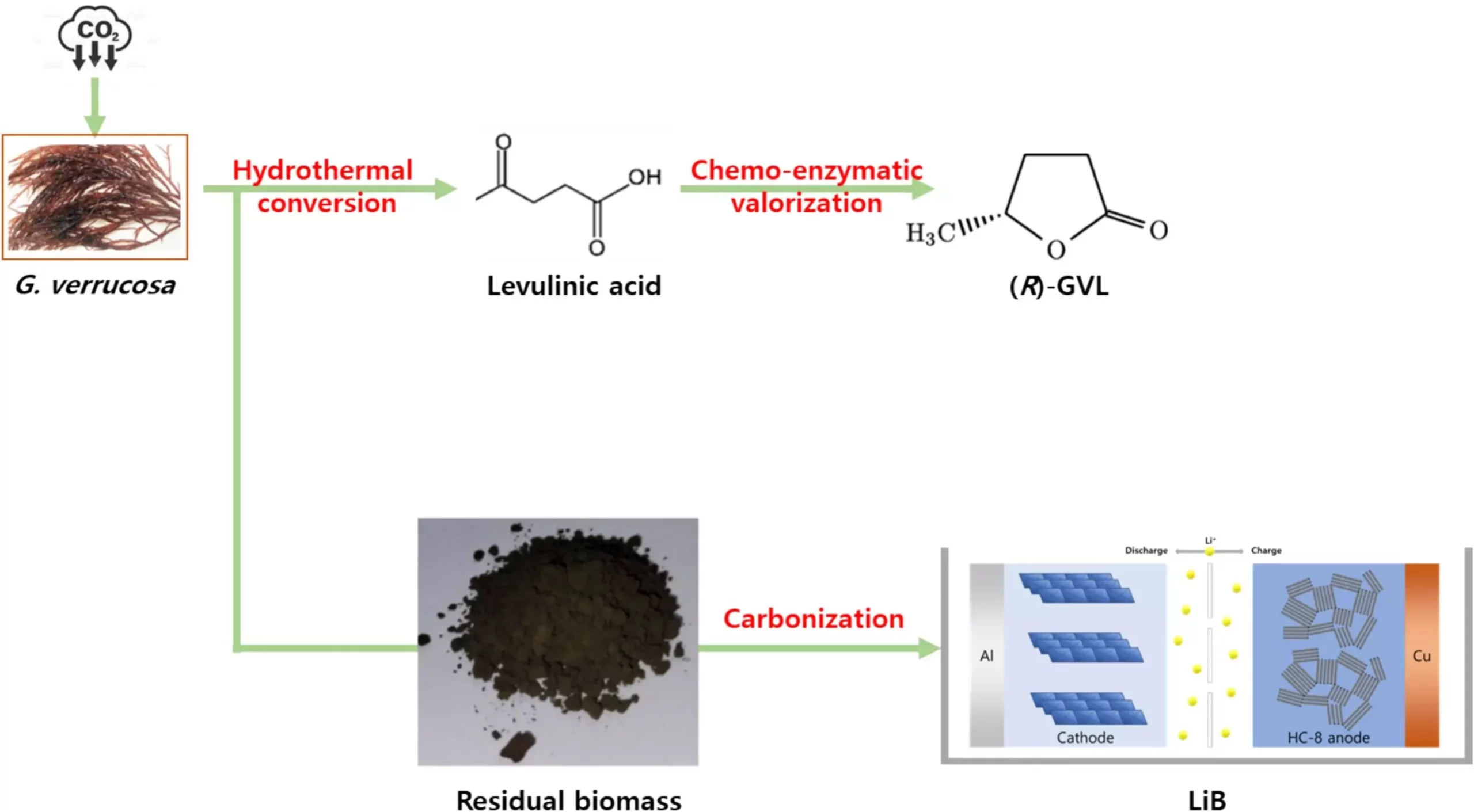Innovations in biofuel technology are rapidly evolving, with increasing attention on unconventional resources that can provide eco-friendly alternatives to conventional fossil fuels. Among these, seaweed has emerged as a remarkable candidate not only due to its abundance but also because of its versatility. Recent research led by Dr. Kyoungseon Min and his team at the Gwangju Clean Energy Research Center has pioneered a groundbreaking method to convert seaweeds, particularly Kkosiraegi, into high-quality precursors for bio-aviation fuels and energy storage devices. This advancement, published in the Chemical Engineering Journal, could change the trajectory of renewable energy solutions worldwide.
The Significance of Bio-Aviation Fuels
A notable finding in renewable energy comes from the potential of bio-aviation fuels, which can reduce greenhouse gas emissions significantly—by as much as 82% in comparison to traditional aviation fuels. The projected growth of the eco-friendly bio-aviation fuel market suggests it could account for up to 35% of the total aviation fuel market by 2070. This shift is crucial as the aviation industry grapples with mounting pressure to reduce its carbon footprint. By utilising seaweed as a raw material, researchers aim to not only address environmental concerns but also tap into a sustainable energy source that has been largely overlooked.
While existing bio-aviation fuel production methods, such as sugar-to-jet technology, show promise in reducing greenhouse gas emissions, they also come with complex pre-treatment processes. These conventional processes rely on microbial fermentation and require high pressure environments, which elevate production costs and reduce efficiency. Typically, only about 15% of fermentable sugars yield usable precursors, underlining the inefficiencies in current systems. Thus, innovations like Dr. Min’s promising new technique are essential in overcoming these obstacles.
The research team’s shift towards a levulinic acid-based process represents a significant leap forward. Unlike traditional microbial methods, the team successfully developed a one-step enzymatic reaction to produce (R)-gamma-valerolactone (GVL) directly from seaweed, significantly enhancing output efficiency. The converting mechanism is straightforward: seaweed is first treated with acid to produce levulinic acid, and then an engineered enzyme converts this compound into (R)-GVL. This process amplifies precursor production by a staggering tenfold, which may revolutionize biofuel generation methods.
The Importance of Optical Purity in Biopharmaceuticals
Another intriguing aspect of this research lies in the production of optically pure (R)-GVL, which holds potential beyond biofuels. This compound can also serve as a critical intermediate in biopharmaceuticals, particularly as a treatment for hypertension. The specificity of (R)-GVL is essential since mixtures of optical isomers are not suited for many applications. The research team’s innovation—producing (R)-GVL with over 99.999% accuracy—marks a pivotal moment for its forthcoming use in the pharmaceutical sector, which has previously been hampered by the lack of suitable catalysts.
Furthermore, the study not only emphasizes the transformation of seaweed into valuable fuels and chemicals but also highlights the effective utilization of residual biomass. Post-production, Kkosiraegi residue can be carbonized and repurposed as anodes in lithium-ion batteries. This dual-utilization approach not only maximizes resource efficiency but also contributes to the circular economy, minimizing waste and optimizing the entire production process.
Dr. Kyoungseon Min articulates a vision of immense potential as Korea stands favorably positioned to leverage its marine resources. The innovative approaches developed by his research team exemplify how seaweed can be utilized to create added value across various industrial sectors while also providing sustainable solutions for energy and fuel. This research is not merely a step forward in biofuel technology but represents a significant stride toward a more sustainable future, wherein oceanic resources play an integral role in global energy production. As the world seeks alternatives to petroleum-based products, seaweed-derived biofuels and materials could provide a viable, forward-looking answer to the challenge of sustainable energy.


Leave a Reply